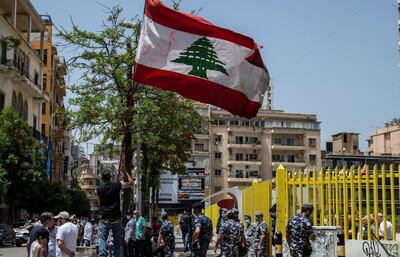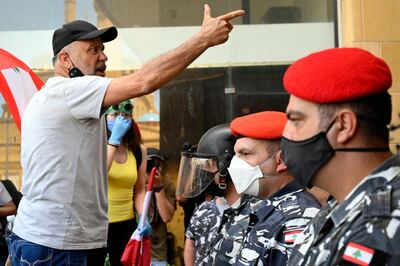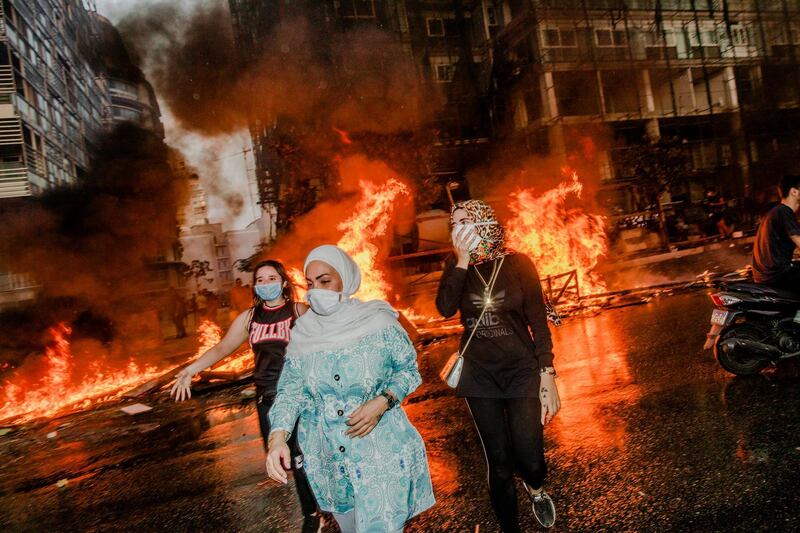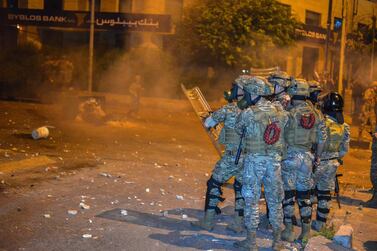It’s difficult to be optimistic in Lebanon today, but we are at a valuable new moment in the country’s history. After decades of feeding off of a rentier system, the country’s corrupt political forces realise they have killed the beast that fed them. It is “game over.” Their ability to recreate what they had before is nil.
If one dared be optimistic, it would be optimism that Lebanon has no alternative today but to rebuild everything from scratch. Even the promise of income from oil and gas was dealt a major blow recently, blocking the oligarchy’s sole way out of their financial dilemma. This interregnum creates an opening for Lebanese society partly to shape its own destiny against the political actors who impoverished them.

There are two paths open for Lebanon today. There is the path of going to the International Monetary Fund and accepting a reform plan that permits the institution to disburse funds to Lebanon. Or, barring that, there is the path of bankruptcy, state collapse, chaos, possibly famine, and mass emigration.
There is simply no third way. Certainly, the politicians or leading political parties have no sincere desire to embrace reform. Nor can they afford, however, an implosion of the state, which would undermine their domination and everything they have fought to preserve since public protests began last October 17.
An IMF bailout plan is the only available key to unlocking wider foreign aid to Lebanon – namely, from the World Bank and the countries that pledged money at the CEDRE conference of 2018. Without such funds, Lebanon will not be able to feed itself within a few months, nor will it be able to import fuel or medicine.
Gone is the rentier system that kept Lebanon afloat. The country was able to sustain its perennial deficits thanks to remittances from Lebanese abroad, including the Gulf countries. For a variety of reasons these started to decline in the past decade. The fact that most depositors are certain to lose a significant share of their money through a financial bail-in plan means that the willingness of Lebanese to send money home has evaporated, and this mood will endure.

Nor can the country hope to attract capital to its banking system as it once did. The lack of confidence in Lebanon and its political direction will remain a hindrance to aid from Arab countries.Both the global economic situation and the lack of confidence in the Lebanese system means that foreign support is unlikely to come. The old order is finished, and the only exit is through an organisation, the IMF, that will keep close tabs on what the government does in its reform programme, perhaps on a monthly basis.
To make matters worse for Lebanon’s oligarchy, its internal coherence is shattering amid rival accusations of corruption. Now, mendacious politicians are portraying themselves as paragons of rectitude. They are anticipating the violent public reaction to widespread destitution, years of economic struggle, children who will pay a heavy price in their education, the loss of social status and self-esteem and the overall misery that accompanies economic disintegration.
The IMF won’t reverse all that, but it is essential if Lebanon is to have any hope of doing so. The political actors finally grasp this.
Hezbollah, even if it is better prepared than others to survive the economic earthquake, needs a state with which to envelop itself. Or else it would not have worked so hard to bring a new government to office earlier this year. It must sense that a Lebanese state fragmented by economic ruin and dissension would make any Israeli attack much more likely and devastating. Nor would the party’s worth to Iran be quite as significant if all it controlled was a failed state.
Hezbollah’s ally Nabih Berri, the parliament speaker, is even more vulnerable. His supporters are mainly in the civil service, where salaries have been slashed by the depreciation of the Lebanese pound. Mr Berri’s inability to assist his followers today, and his unsavoury reputation, explain why he is so keen to arrive at a deal with the IMF.
Saad Hariri, the former prime minister, is of a similar frame of mind. He sees himself as the natural interlocutor with the international community and the Arab states on financial and economic matters. Unless Lebanon has an IMF deal in hand, Mr Hariri will have no role to play if he returns to office.
Finally, Gebran Bassil, the head of the Free Patriotic Movement, also needs a deal. He pines for the presidency now held by his father-in-law Michel Aoun. But of what value is being president if Lebanon fails to agree with the IMF and is transformed into an economic basket case on par with Venezuela - only without the oil revenues?
The general view is that Lebanon’s political class is incapable of reforming, and therefore its acceptance of an IMF plan is impossible. The first part of the sentence is mostly true. But Lebanon’s political actors are also focused on their own survival, which means the second half of the sentence cannot be true.
There are two roads open for Lebanon today, one leading toward reform, the other toward devastation. The political parties will grind their teeth and scheme to get as much out of the IMF as they can, but they will have to broadly accept an agreement in the end. They’ve trapped themselves and have nowhere else to go.
Michael Young is editor of Diwan, the blog of the Carnegie Middle East programme, in Beirut






